The history of film hasn't been kind to people of African descent, particularly in those first years of cinema, when movies like Birth Of A Nation (1915) glorified discrimination. As the years went by, Black people have fought to make their voices and stories heard by picking up the camera and producing wonderful films.
As with music, Black cinema has enriched the medium, producing some of the greatest movies of all time. The Black experience has shaped movies and showed a necessary perspective that was neglected by audiences and studios for many years. Here are the 10 best films by Black directors, according to IMDb.
10 Selma (7.5)

1965's Selma to Montgomery voting rights marches were pivotal for the Civil Rights Movement and segmented Martin Luther King Jr. as one of the most important leaders in it. Close to its 50th anniversary, Ava Duverney committed to recreating the historical moment in an amazing film that established her as a female filmmaking powerhouse.
David Oyelowo earned several nominations for his interpretation of Dr. King, and Duvernay received praised for her directing and screenwriting abilities since she re-wrote 90 percent of the original script, including new speeches for King, since she couldn't use the originals because of copyright reasons.
9 Moolaadé (7.6)
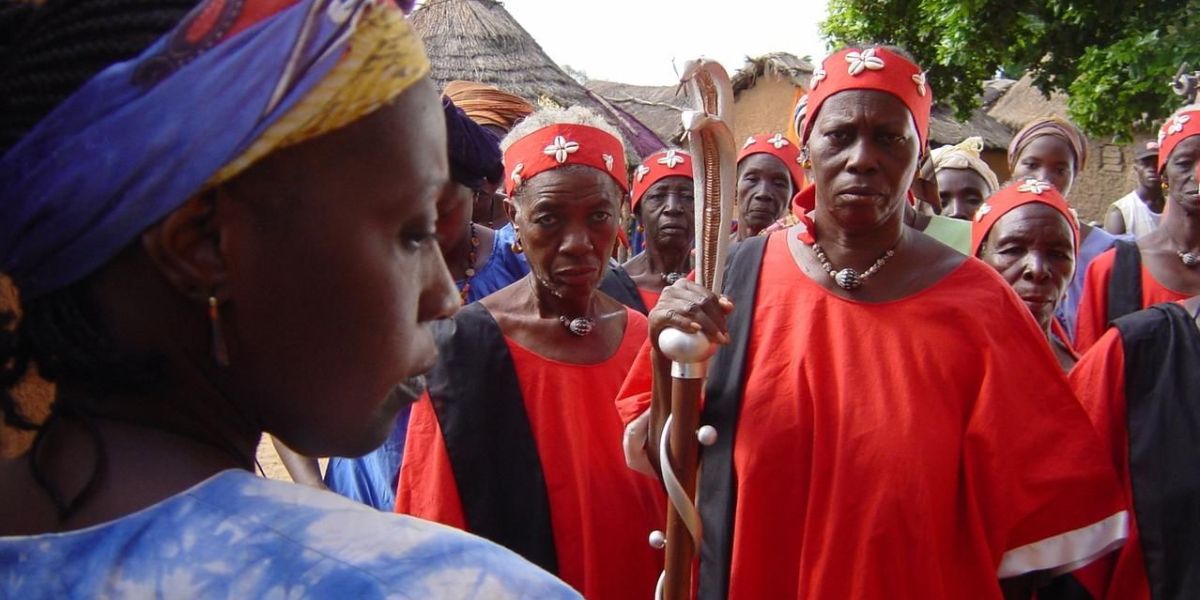
In 2004, the Cannes Film Festival showcased one of the most important films to come out of Africa. Directed by Ousmane Sembène (who has been called "the Father African cinema"), Moolaadé talks about a gruesome subject that is still a problem in today's world: female genital mutilation.
Filmed in the remote village of Djerrisso in Burkina Faso, the movie depicts a woman, Collé, who goes against her village wishes and protects a girl from being mutilated.
8 The Five Heartbeats (7.6)
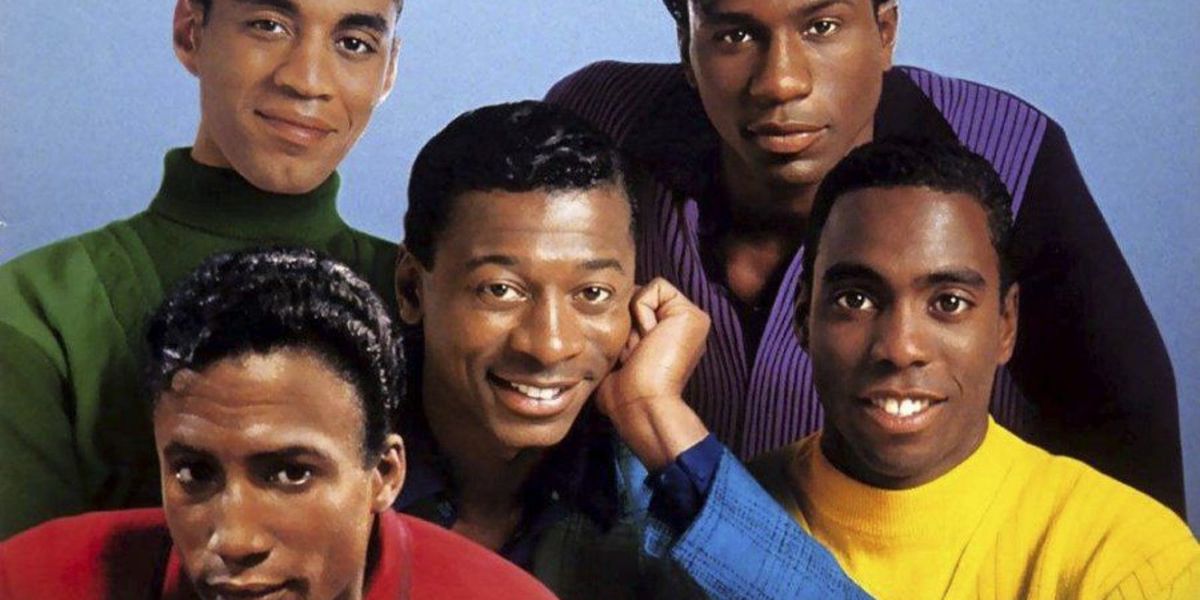
This one is interesting since Robert Townsend's The Five Heartbeats was not well received in its time in '91. After the success of his first film, Hollywood Shuffle, many critics were disappointed with his sophomore effort, making the film very forgettable, not being released internationally until 2002, and receiving only a 39 percent on Rotten Tomatoes.
However, through the years, the movie has earned a cult following that explains its high ranking on IMDb. The movie, which tells the story of rhythm and blues vocal group, is inspired by the stories of musicians like The Dells and The Temptations, and it apparently strokes a chord with new audiences.
7 Creed (7.6)
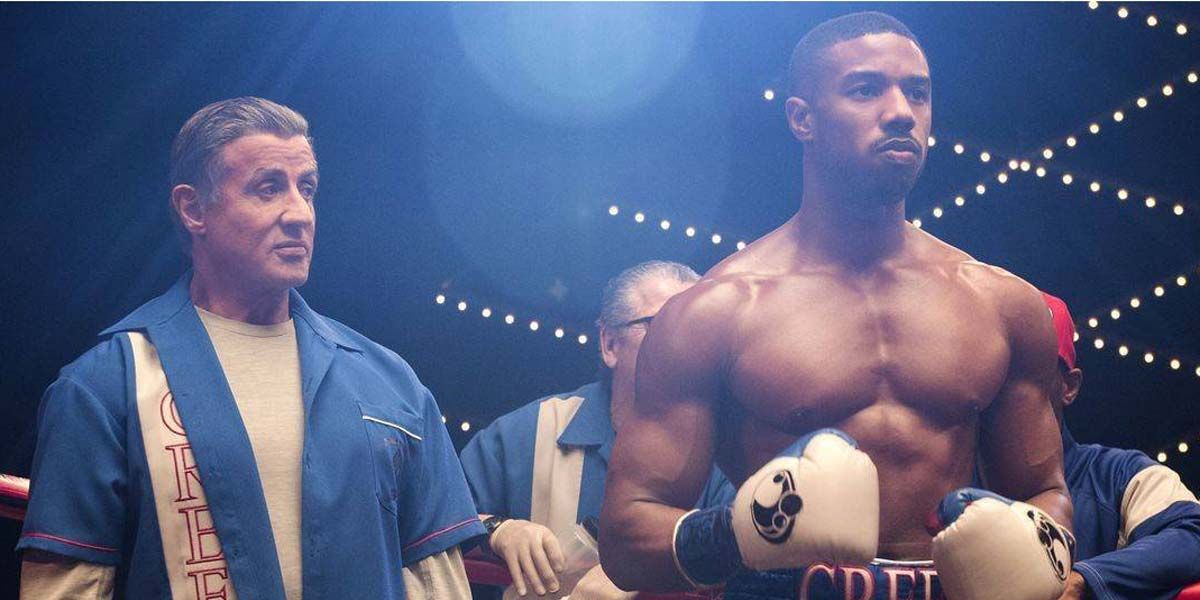
Before Ryan Coogler became the first Black person to direct a Marvel Cinematic Universe movie with Black Panther, he already had made a name for himself by directing one of the best sequels in the Rocky saga: Creed. With the blessing of Sylvester Stallone himself, Coogler set out to continue the story.
But this time, the protagonist was the son of Rocky's rival-turned-friend, Apollo Creed. Michael B. Jordan played Adonis Creed masterfully and Coogler's direction is very reminiscent of the first Rocky movie in spirit while adding a new perspective from the filmmaker.
6 Boyz N The Hood (7.7)
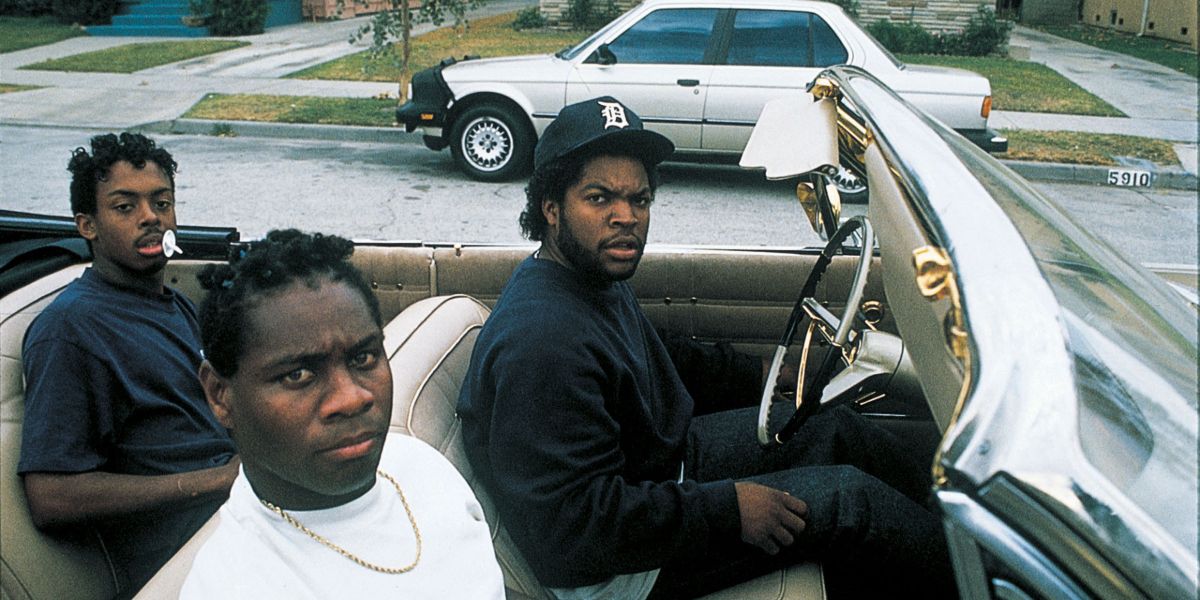
Director John Singleton was the youngest person to be nominated for the Academy Award for Best Director at the time, with his coming of age drama Boyz n The Hood. Based on his experiences as a young man in his own neighborhood, Singleton wrote the script for filmmaking school and subsequently sold it to Columbia Pictures.
The film is notable for launching the acting careers of Ice Cube, Cuba Gooding Jr., and Nia Long, and was shot in sequence. It went on to become one of the most cherished films of the 90s directed by a Black filmmaker.
5 Training Day (7.7)
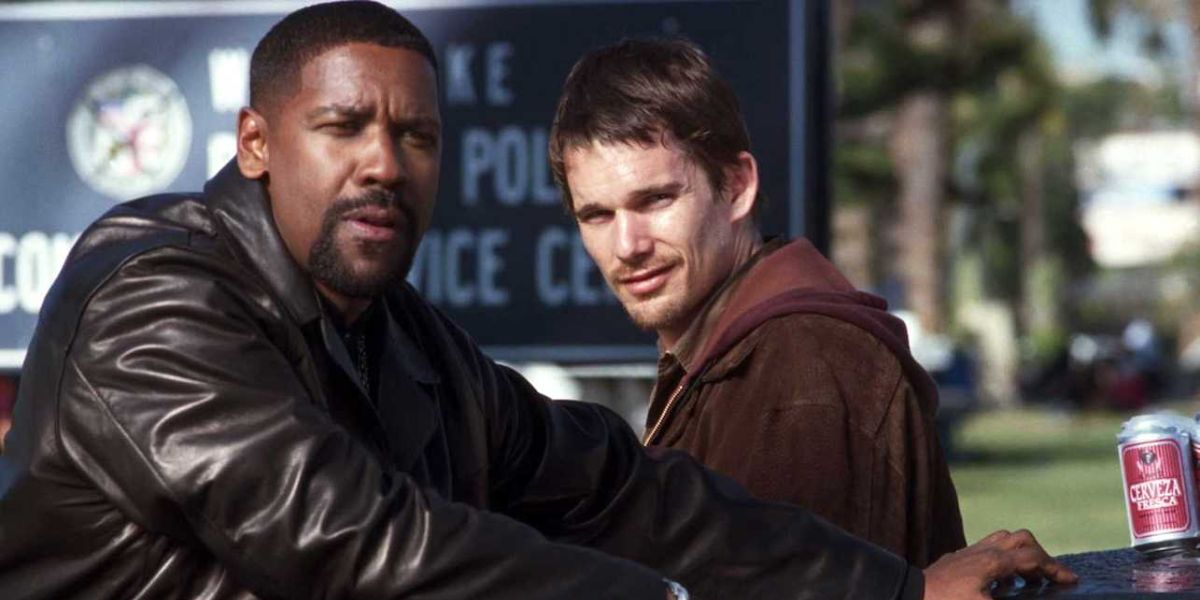
Antoine Fuqua hit gold in 2001 when he directed Training Day. A gripping thriller about a rookie cop, played by Ethan Hawke, entering the world of dirty police justice of Los Angeles. Denzel Washington's performance as corrupted detective Alonzo Harris earned him an Academy Award for Best Actor.
Fuqua wanted the film to be as realistic as possible, so he got permits to film in some of the most dangerous neighborhoods in L.A., going as far as getting permission from gang members to allow his crew to enter these areas.
4 Get Out (7.7)
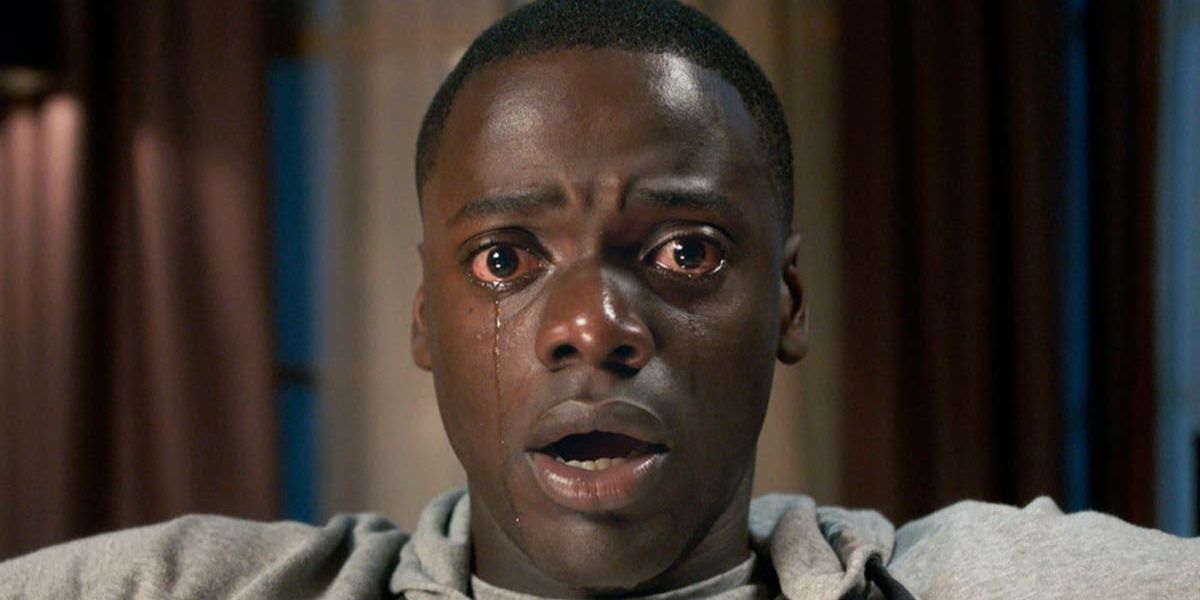
No one knew that one of the halves of Key And Peele would become a master of horror but, after Get Out was released in 2018, Jordan Peele managed to establish himself as a great director in the genre. Peele told an engaging g story while tackling racism from a perspective relatively untouched before.
The characters in the film are oblivious of their own biases and don't understand their part in a discriminatory social system, attempting to wash their hands with their paternalistic view on race. This results in the family fetishizing black people to the point of trying to become them in a very horrifying way.
3 Straight Outta Compton (7.9)
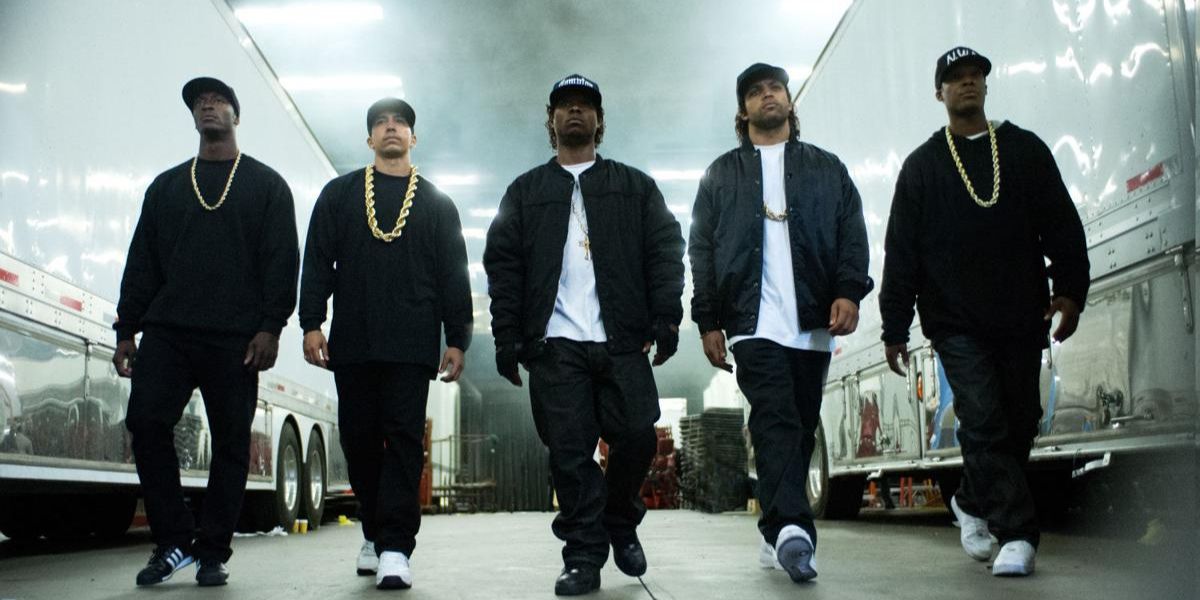
Westside hip-hop group N.W.A. and their debut album, Straight Outta Compton, defined a whole generation in music and culture in general, producing some household names, like Ice Cube and Dr. Dre. Their biopic was directed by F. Gary Gray, who had worked with Cube in the classic 90s comedy Friday.
The film explored the origins of the group and their eventual separation in a fast-paced retelling with phenomenal acting from Corey Hawkins as Dre and Ice Cube's son, O'Shea Jackson Jr., playing his dad with eerie precision.
2 Do The Right Thing (7.9)
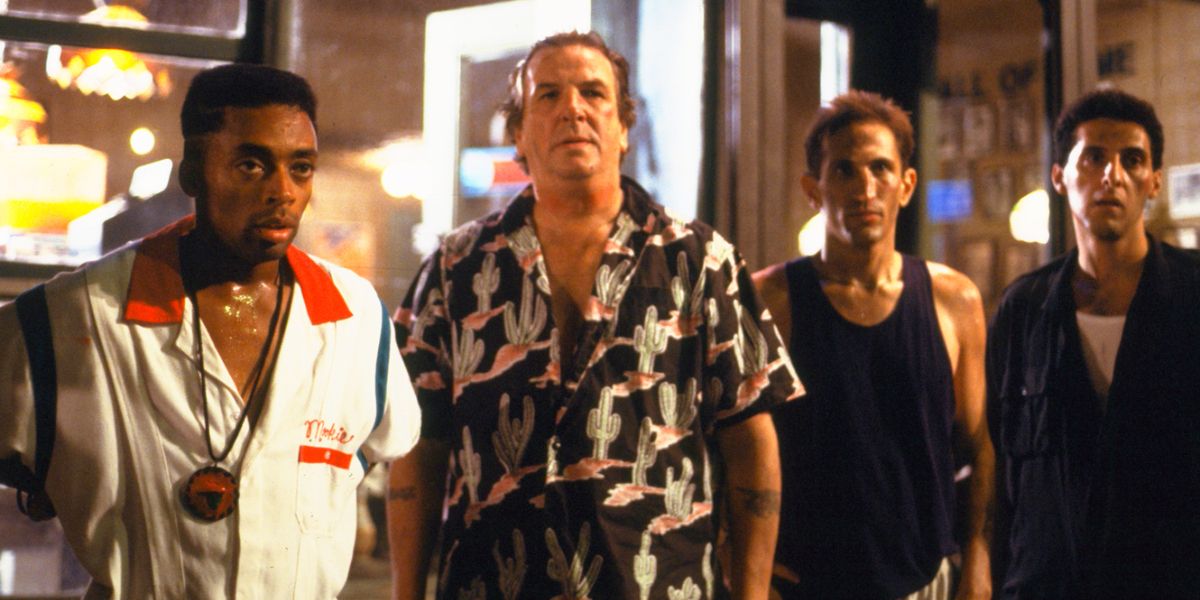
Do The Right Thing is one of those gems that was never fully appreciated. It didn't win the Oscar for Best Picture in 1989, but it is easily the most relevant film of that year to this day. The story is set on a very hot day in Brooklyn, New York City, where racial tensions permeate relationships within a diverse community.
Spike Lee, who starred in the movie, set out to tell a story that impacts its audience by depicting how a society can degenerate through the optics of racism, effectively criticizing not only the discriminatory behavior, but the system that perpetuates it.
1 12 Years A Slave (8.1)
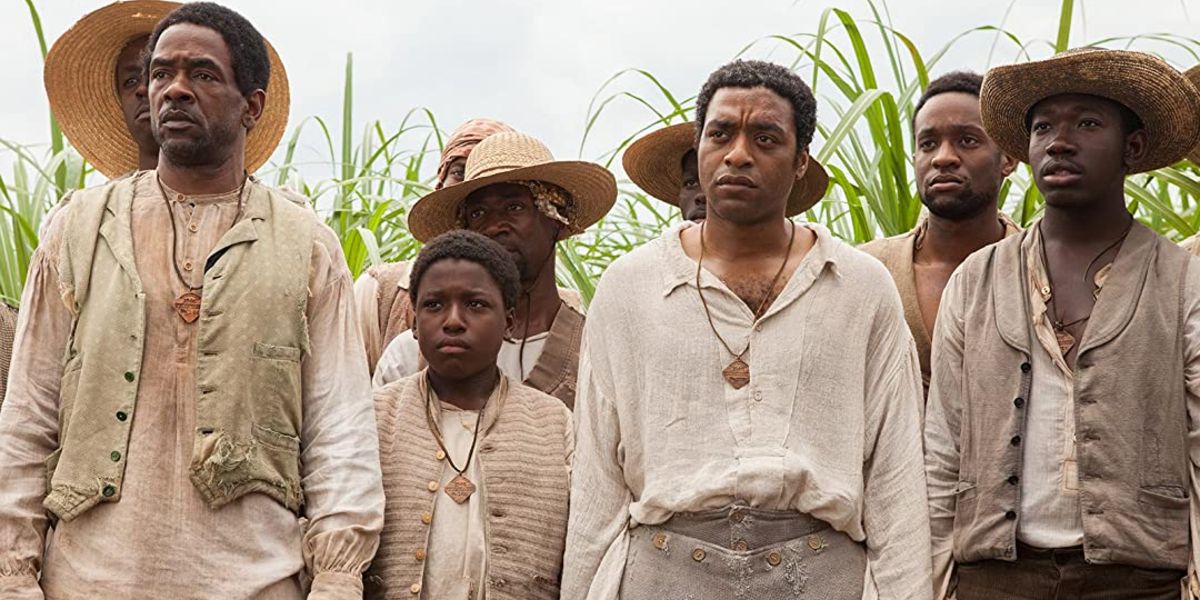
2013's Oscar winner for Best Picture is one of the most visceral portraits of slavery in cinema history. Steve McQueen tackled this dark chapter in American history by presenting Solomon Northup, a free man kidnapped from the North and turned slave in the farms of the South.
Many stories have been told about slavery. Shows like Roots were very important for the narrative that surrounded the subject, but 12 Years A Slave took it to another level, demanding its audience confront a painful and disgraceful past.
from ScreenRant - Feed https://ift.tt/3eQru5O


0 Comments